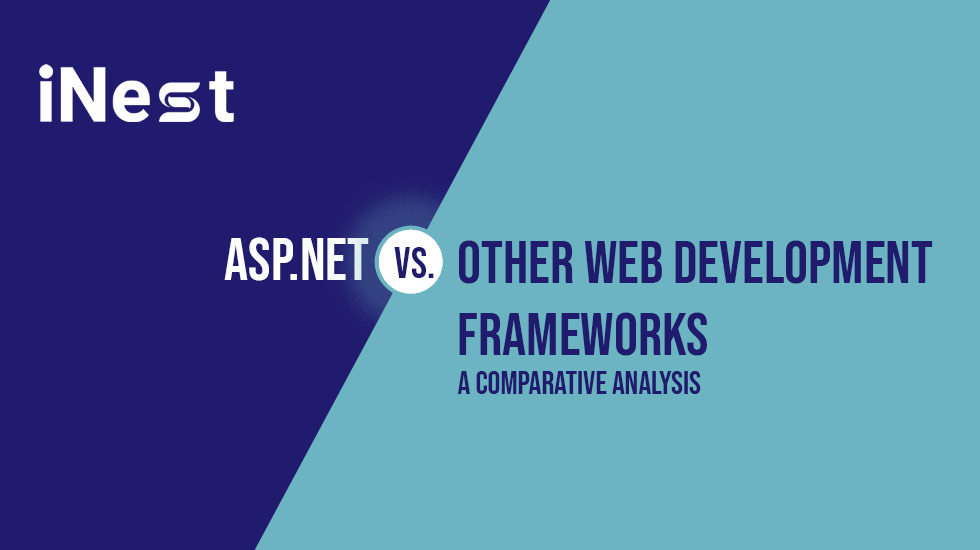In the ever-evolving world of web development, choosing the right framework is critical to building robust and scalable web applications. One of the main competitors in this area is ASP.NET, a framework created by Microsoft. In this article, we compare ASP.NET to other popular web development frameworks to explore their features, benefits, and use cases.
ASP.NET is a server-side web development framework designed to help developers build dynamic and sophisticated web applications. Integrated into the broader .NET ecosystem, ASP.NET includes a variety of programming languages such as C# and Visual Basic, creating a versatile development environment. In particular, it improves extensibility by adopting the Model-View-Controller (MVC) architecture, a paradigm that supports simple and easy-to-maintain construction code. It can increase the efficiency of web application development.
Comparative Analysis
- ASP.NET vs. PHP: In the web development field, there is a common comparison between ASP.NET and PHP. PHP, a server-side scripting language, is widely used in the field. However, combining ASP.NET often provides performance and security benefits. In particular, ASP.NET applications run faster than PHP because they are compiled. In addition, the seamless installation with the Windows operating system enhances your application’s security features: Developers need a powerful and secure web development framework.
- ASP.NET vs. Ruby on Rails: In the field of web development, Ruby on Rails, known for its simplicity and adherence to composition principles, competes with ASP.NET. With its powerful Visual Studio integrated development environment (IDE) and extensive library support, ASP.NET appeals to developers looking for a complete and comprehensive development environment. Deciding between Ruby on Rails and ASP.NET is often influenced by project-specific requirements—and individual developer preferences.
- ASP.NET vs. Django: Django, recognized as a high-level Python web framework, parallels ASP.NET in its emphasis on modularity and scalability. However, ASP.NET stands out due to its seamless integration with Microsoft technologies and its effortless collaboration with other components within the broader .NET ecosystem. This distinction positions ASP.NET as a favoured choice for enterprises deeply entrenched in the Microsoft ecosystem, capitalizing on the framework’s compatibility and synergy with Microsoft technologies.
Key Features of ASP.NET
- MVC Architecture: ASP.NET leverages the MVC architectural pattern, enhancing code organization and maintainability. This separation of concerns allows developers to focus on specific aspects of the application, streamlining development and debugging processes.
- Integrated Development Environment (IDE): Visual Studio, Microsoft’s integrated development environment, is a powerful tool for ASP.NET developers. Its features, such as code completion, debugging, and testing, contribute to a more efficient development workflow.
- Cross-platform Compatibility: With the introduction of .NET Core, ASP.NET became cross-platform, enabling developers to build and deploy applications on various operating systems. This flexibility expands ASP.NET’s reach and accommodates diverse hosting environments.
Advantages of ASP.NET
- Language Interoperability: ASP.NET supports multiple programming languages, including C# and Visual Basic, allowing developers to choose the language that best suits their skills and project requirements. This flexibility fosters collaboration among developers with diverse language preferences.
- Scalability and Performance: The compiled nature of ASP.NET applications contributes to superior performance. Additionally, ASP.NET’s ability to handle large volumes of concurrent users makes it an ideal choice for applications with scalability requirements.
- Security Features: ASP.NET incorporates robust security features, including authentication and authorization mechanisms. Its integration with Windows security services enhances protection against common web application vulnerabilities.
the choice between ASP.NET and other web development frameworks depends on various factors, including project requirements, developer expertise, and organizational preferences. ASP.NET’s strength lies in its versatility, performance, and seamless integration with Microsoft technologies. As the web development landscape continues to evolve, ASP.NET remains a formidable contender, offering a comprehensive solution for building modern and scalable web applications.
Whether you opt for the simplicity of PHP, the convention-over-configuration approach of Ruby on Rails, or the modularity of Django, understanding the strengths and nuances of each framework is essential. As technology advances, the decision-making process should be driven by careful consideration of the specific needs and goals of your web development projects

